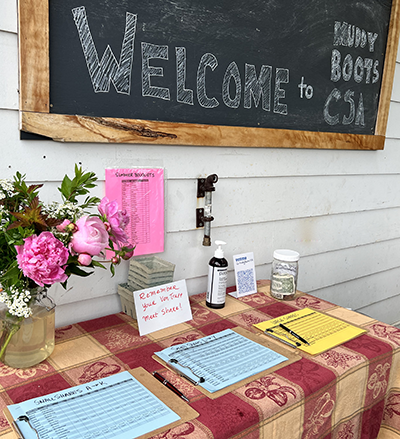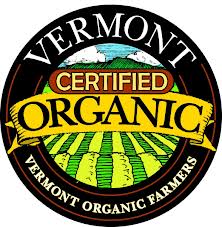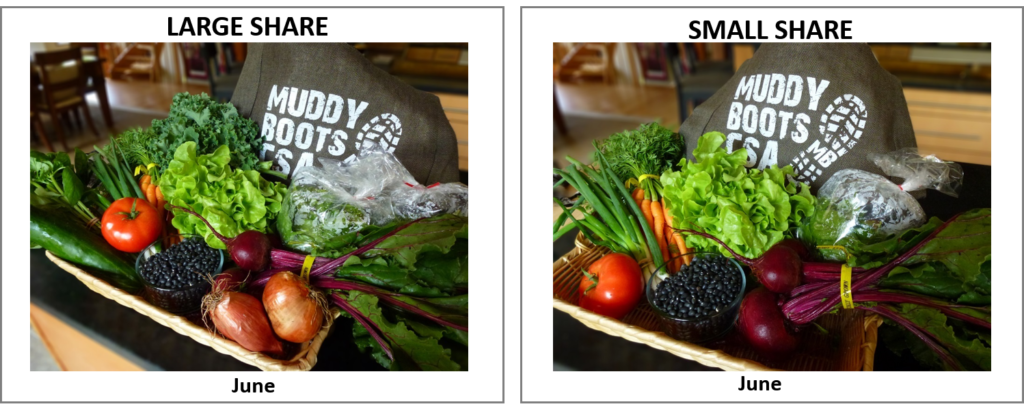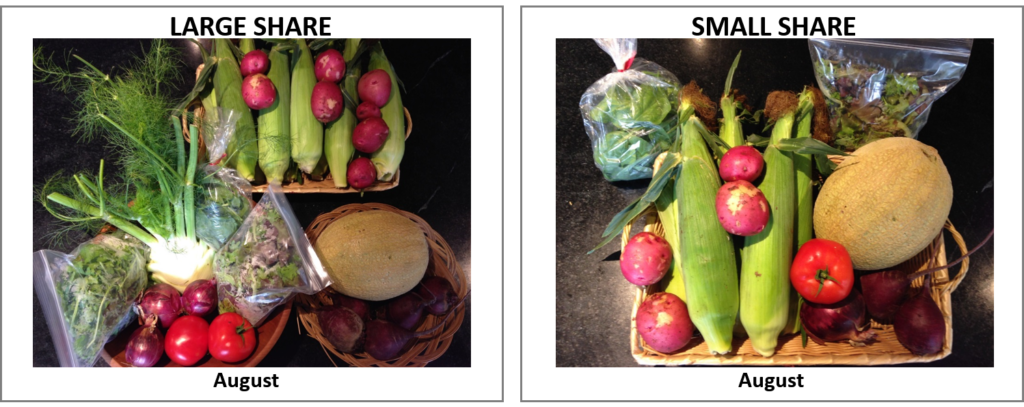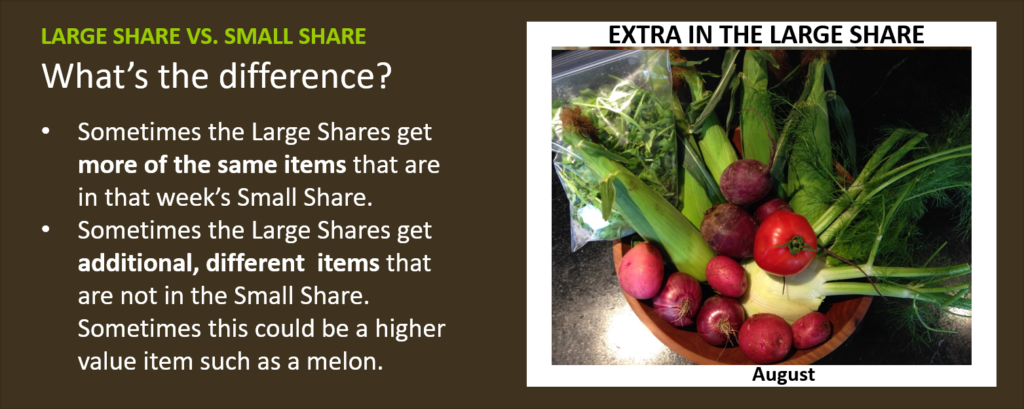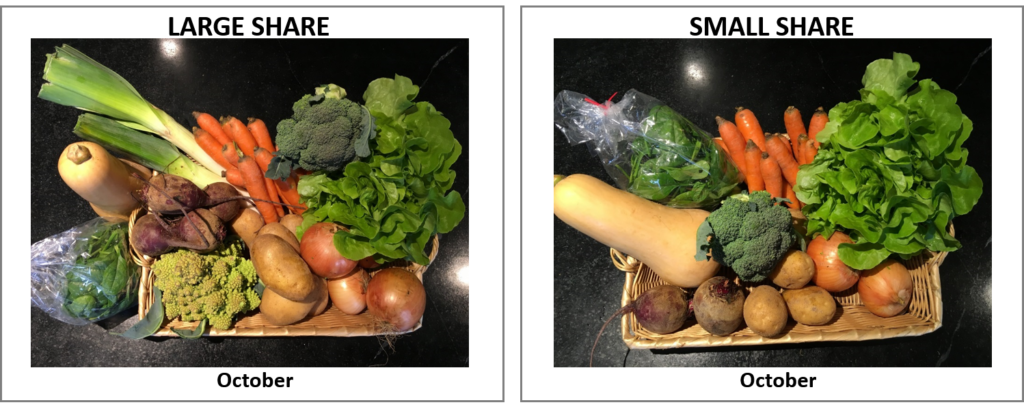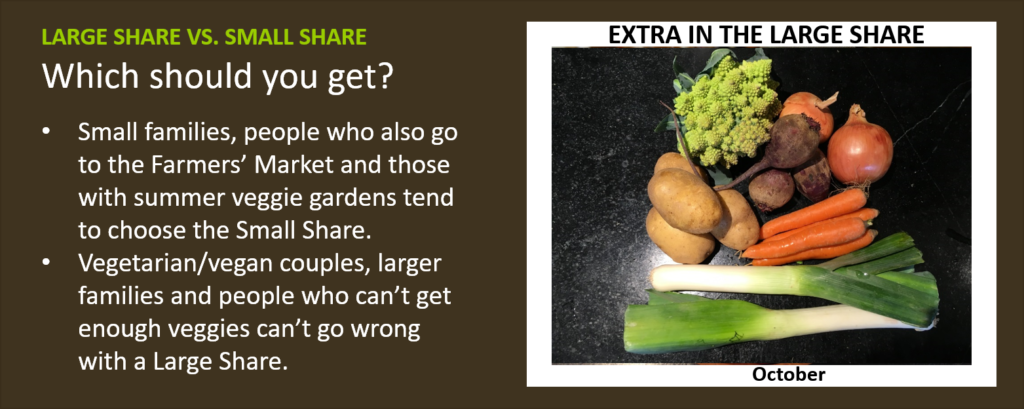Welcome to Muddy Boots CSA 2024
What Is A CSA?
CSA stands for Community-Supported Agriculture. It’s a win-win system where members buy shares of produce in advance, giving the farmer much needed cash to get the season started.
In exchange, members receive a weekly supply of fresh produce throughout the growing season.
Muddy Boots CSA at a Glance
- Two Share Periods:
- Summer Period (12 weeks): June 19, 2024 to September 4, 2024.
- Fall Period (8 weeks): September 11, 2024 to October 30, 2024.
- PLUS our annual Bulk Winter Veggie Stock-Up Sale on October 30, 2024!
- Two Share Options – Small or Large Shares
- All Certified Organic Produce from a collaborative of Vermont farms.
- Add-On Shares from Local Farms
- Summer Weekly Flower Bouquet from Mountain Flower Farm
- Von Trapp Yogurt Add-On (Plain and Maple!)
- Pastured Egg Share from Triple J Pastures
- 4-week Blueberry Share from Green Rabbit Bakery
- Cut-Your-Own herbs and flowers from Cloud Water Farm
- Pick-Up Wednesdays at Cloud Water Farm, Warren, VT 12 noon to 6:00pm
Share Periods
We offer two share periods: Summer and Fall. You can sign up for one or the other or you can sign up for the full season.
Quality and Variety
- Our farmers are growing for this CSA; they have developed a thoughtful planting and harvest plan with the shareholders in mind. You are not getting stuck with what isn’t selling elsewhere.
- Each year we tweak our growing plans based on feedback from our members in the past season. What we have learned is that people want a variety of staple vegetables with occasional surprises. One thing all members agree on is that our produce is beautiful.
- Salad greens are washed and ready to use.
- Other vegetables are cleaned if it doesn’t bruise them or affect their shelf-life.
- Tomatoes are never refrigerated.
- Most crops are harvested early in the day to keep them fresh.
- Most veggies will last much longer than you are used to with supermarket produce.
Examples of Veggies in Our Shares
Here is a list of the veggies and fruit members received in last season – over 70 different varieties in 2023!
*Several different varieties were in shares throughout the season.
Two Share Sizes
- Small Share – Typically includes salad greens and/or spinach plus the featured vegetables of the week.
- Who Should Get This Share: Great for small families or folks who have a home garden and/or also like to go to the farmers’ market on the weekend.
- Large Share – Typically includes a larger portion of salad greens and/or spinach plus the featured vegetables of the week. Sometimes vegetables are included in the large shares that are not in the small shares. We do this to provide more variety and because of the pricing of the large share we can include items that have a higher value.
- Who Should Get This Share: Great for vegetarian/vegan couples or families.
Important Consideration When Choosing Share Size
Sometimes the Large shares get more of certain items and sometimes the Large shares get items that the Small shares do not get. There are a couple of reasons for this:
- Sometimes the farmers only have enough of the item to provide them to the Large shares.
- In other cases, the item may be valued at a price higher than the allowance for the Small share. For example, during one week in the last few years, the Large shares all received a watermelon. Because of it’s relatively high value, it wasn’t practical to give the Small shares a watermelon or the rest of the share would have seemed skimpy.
We always recommend to start with a small share if you are unsure of the right size for you. If you change your mind and want a large share after the season starts, just let us know and we will upgrade you and you will just owe the pro-rated difference in price.

